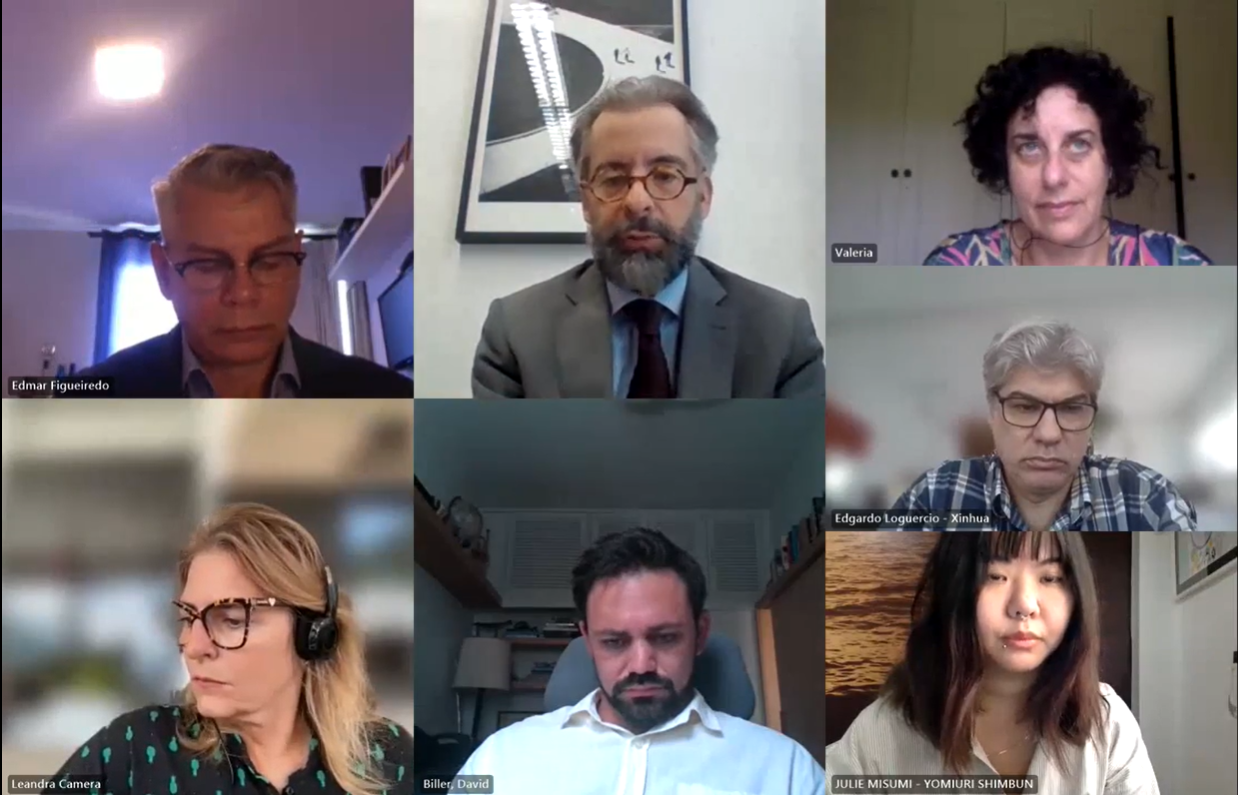Global governance reform is crucial to facing current challenges
Brazil’s Sherpa Mauricio Lyrio argues that a reform of the UN might strengthen the institution—the basis on which global peace could be built

In view of current geopolitical tensions, Brazilian Ambassador Mauricio Lyrio, Secretary of Economic and Financial Affairs at the Ministry of Foreign Affairs and Brazil's Sherpa at the G20, spoke this Monday (5/2)—at a press conference with foreign correspondents—about the need for a global governance reform capable of addressing challenges such as poverty, climate change and regulation of artificial intelligence.
According to the Ambassador, the reform of the United Nations is a broad topic that alludes to the institution’s effectiveness and representativeness at over 70 years old—and one that would involve not only the Security Council, but the institution as a whole.
Presently, the Ukraine war and tensions in Gaza are dividing nations and making agreements even harder to reach. Moreover, resources are being spent on war efforts, instead of being used to address important international issues such as health and the environment.
“President Lula's main message is that we are facing global challenges that require coordinated solutions between countries. If there are no strong international organizations, it is harder to find solutions and to implement them,” said the ambassador.
Mauricio Lyrio also added that a strengthened UN system is the basis for peace—and that international institutions must be capable of preventing conflicts, and of allowing resources to be focused on sustainable development and combating inequality.
Articulation between the Sherpa and Finance tracks
The ambassador also highlighted that an inaugural meeting was held for the first time in the history of the G20. The meeting was attended by Finance Track Coordinator Tatiana Rosito, and by the then Director of the Central Bank, Fernanda Guardado, with the sherpas of G20 countries. To Lyrio, it is useless to think about a global alliance against hunger without thinking about the financial aspect and about the need to mobilize financial institutions. In this sense, articulating G20 tracks is a Brazilian priority.
And, in Brazil's spirit of presenting innovative but feasible proposals, Mauricio Lyrio also mentioned that countries facing hunger are often the most indebted in the world. So, “why not think about mechanisms to exchange debt for social programs, income transfer and support for family farming? There are already successful experiences of exchanging debt for an environmental program, for example,” concluded the ambassador.